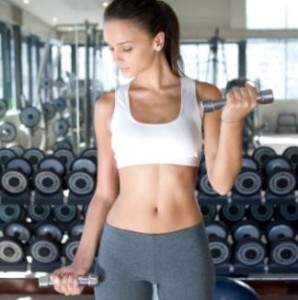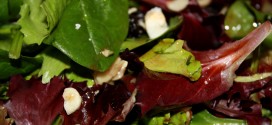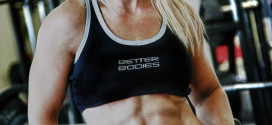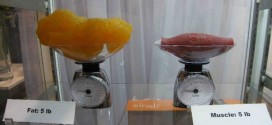A friend of mine recently messaged me with a problem that I definitely also had when I started strength training. Okay – several problems. Do I need to take supplements? Which supplements do I need, and when do I take them?
 It’s taken a lot of time and research for me to overcome my basic #fitnessn00bprahblems, but for all the girls out there that have been inspired to start lifting (one might also call this ‘enlightened’) – I’d like to offer a helping hand for new kids on the block.
It’s taken a lot of time and research for me to overcome my basic #fitnessn00bprahblems, but for all the girls out there that have been inspired to start lifting (one might also call this ‘enlightened’) – I’d like to offer a helping hand for new kids on the block.
If you’re going to start training with weights – or begin any serious athletic program – then yes, you will need to boost your current (healthy) diet with supplements. Of course, a good, well-rounded diet is the key to making gains and seeing progress – any athlete will tell you that abs are made in the kitchen! But that said, athletes require a little bit extra; heavy strength training, for example, places additional demands on your body that increase your requirement for protein, vitamins and minerals. Taking a good combination of supplements will enhance your performance and help your body recover properly, giving you the chance to really maximise your potential.
Supplements for athletes are readily available online and on the high street. Boots and other pharmacists – and many supermarkets – stock a good variety of products, and shops like GNC have an even greater variety and knowledgable staff that will help you find the right product. I’ve also added links to good online stores throughout this article to make it easier to purchase all the following necessities in a few clicks … now, don’t say Supplement Judge isn’t good to you!
The recipe for a good, basic stack of supplements would be as follows:
In the AM:
- A good multivitamin
Although there is little evidence that multivitamin tablets actually enhance performance, even the most well-rounded diet will lack certain vitamins in certain places, especially if you’re controlling calories. A supplement will simply pick up the nutritional shortfalls in your diet and prevent deficiencies that can contribute to chronic conditions. For women this can be particularly important: minerals such as iron, for example, are absolutely essential to keep the female body operating as it should. Taking a multivit such as Vitabiotics Wellwoman Sport & Fitness tablets in the morning (just one!) is a good idea – for more detailed information, read this article.
- Fish oil
Taking a fish oil capsule daily has been proven to be an effective method of reducing cholesterol levels and reducing the risk of cardiovascular disease. A miracle supplement? Perhaps, indeed! Additionally, supplementing your diet with fish oils and performing exercise on a regular basis could increase the amount of fat you are able to burn (see here for details). Anyone considering embarking on a training program should begin taking a fish oil supplement: they are typically low-cost, easy to come by, and beneficial so many different ways. Currently, I take this capsule – at £2.99 for a month’s supply, it’s practically a no-brainer
- L-Carnitine
Carnitine is a substance that helps the body turn fat into energy. Some athletes choose to take L-Carnitine for sports nutrition purposes due to its ability in helping to make fatty acids available as an energy source for muscles, as well as aiding fat metabolism. It is also thought to support recovery after exercise, which may be beneficial for those who exercise frequently.
Pre-workout: Creatine
Creatine is a compound made naturally in our bodies as an energy replenisher. Creatine replenishes ATP, the molecule which when broken down releases energy for the muscle to contract; numerous studies have demonstrated that the more creatine that is present in muscle cells, the more efficiently ATP can be replenished, and, hence more ATP is available for energy. Thus taking creatine before a workout allows you to have more energy to help lift heavier weights, train harder and at higher intensity (read a more detailed article here). Try MyProtein Pulse V4 – it tastes good, and you can really feel the ‘buzz’ kick in if you take it half an hour before your workout. This mixture contains creatine monohydrate, but also a blend of other ingredients that combine to give a really powerful ‘pump’ before the gym. There are also plenty of other tailored pre-workout mixes that contain creatine out there – all worth a try, with strict moderation!
Post-workout: Protein
A good protein powder will contain several ingredients that essentially kill several birds with one stone (read more here). Our recommendation would be a whey protein powder; whey protein is quickly and easily digested, and has an excellent amino acid profile. Whey proteins are available in several forms – MyProtein Impact Whey Protein or Dymatize Nutrition Elite Whey Protein are both good all-rounders that get the thumbs up from us! You’ll want to take protein after you work out, as per the instructions. This helps build muscle and aid recovery, and is recommended widely for anyone partaking in regular exercise.
–
There is no magic formula for all disciplines, of course, but if you’re getting started with a serious training program, there are certain things you will need to add to your diet, and these basic supplements will form the initial building blocks of your supplement stack as you progress and try new things.
So there you go, fitness n00bs! Ultimately, adding supplements will give you the extra nutritional boost you require, making it easier for dem gains to be made and for you to reach your fitness goals. Go forth, stock up, and get training!
–
Works Cited
Bean, Anita. The Complete Guide to Strength Training. London: A&C, 2008. Print.
http://www.webmd.com/vitamins-and-supplements/nutrition-vitamins-11/help-vitamin-supplement
Dyck DJ. “Dietary fat intake, supplements, and weight loss”. Can J Appl Physiol. 2000. 25(6): 495-523. Print.
Volek J, et al. “Effects of carnitine supplementation on flow-mediated dilation and vascular inflammatory responses to a high-fat meal in healthy young adults”. Am J Cardiol. 2008. 102(10). Print..
 Supplement Judge Unbiased Supplement Reviews – Do they really work??
Supplement Judge Unbiased Supplement Reviews – Do they really work??




